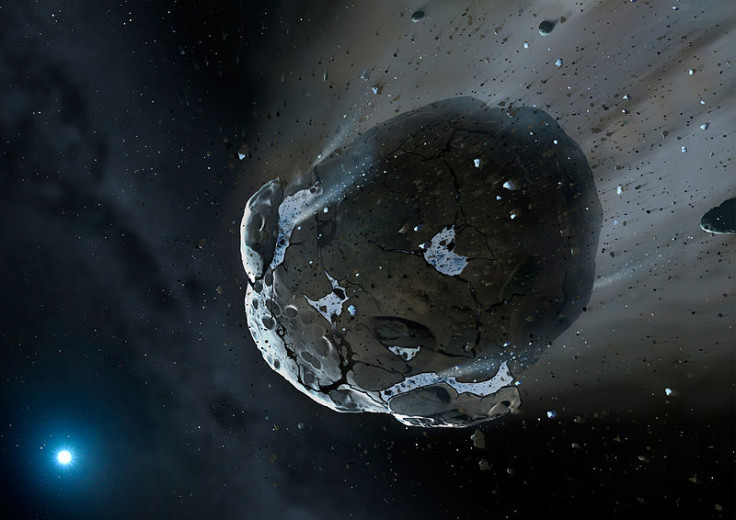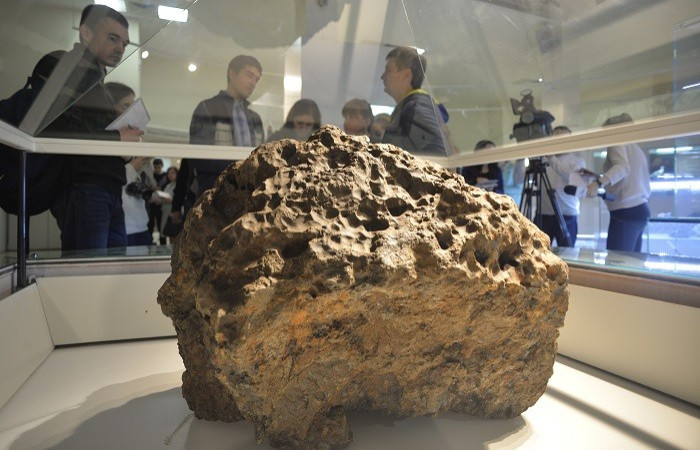Become an Asteroid Hunter: Nasa Offers $35,000 to Budding 'Citizen Scientists'

Nasa has launched a contest seeking "citizen scientists" who will be rewarded for improving the way we locate and destroy asteroids in our Solar System.
The Asteroid Data Hunter Contest will offer $35,000 in rewards over the next six months for scientists who develop algorithms that can be used to identify meteorites.
It is hoped the contest and research will help understand the rocks and avoid collisions with our planet, such as the previously undetected Chelyabinsk asteroid which hit the Russian town with the force of 500,000 tonnes of TNT.
The first series will begin on 17th March, in partnership with the asteroid mining company Planetary Resources Inc of Bellevue in Washington. Before the competition begins, competitors can create an account on the contest series website and learn more about the rules. The Asteroid Data Hunter Contest will be managed by the Nasa Tournament Lab and is the first contest series contributing to the agency's Asteroid Grand Challenge.
Jason Crusan, Nasa Tournament Lab director, said in a statement: "For the past three years, Nasa has been learning and advancing the ability to leverage distributed algorithm and coding skills through the Nasa Tournament Lab to solve tough problems."

Crusan also added that Nasa's experience with algorithm contests will help protect the planet from meteorite threats through image analysis.
The contest series challenges participants to develop significantly improved algorithms to identify asteroid in images taken by ground-based telescopes. The winner will provide a solution that increases detection sensitivity, minimises the number of false positives and ignore imperfections in the data. It will also be required to run effectively on all computer systems.
According to Headlines & Global News, the space agency is looking for an algorithm that can improve Near-Earth Object detection and "reject false positives from a list of asteroid detections."
Jenn Gustetic, an executive on the programme, said: "Protecting the planet from the threat of asteroid impact means first knowing where they are. By opening up the search for asteroids, we are harnessing the potential of innovators and makers and citizen scientists everywhere to help solve this global challenge."
At a South by Southwest Festival in Austin, Texas, Gustetic and Nasa's Jason Kessler explained how the scheme will help humans outsmart the dinosaurs, as open innovation can engage people in discussions and research into space exploration.
Gustetic said: "This may be news to you, but humans weren't first to dominate the Earth! Dinosaurs dominated the planet for a lot longer than we've dominated the planet. A fraction of the time, in fact."
She added that the technique used by dinosaurs - to "grow to a gigantic size and then eat any competition" - made them vulnerable when an asteroid stuck the planet near the Gulf of Mexico 66 million years ago.
Gustetic said: "A mass extinction is something that takes out 75% of the species on the planet over 2m years. All of human history has been the last eight seconds of the cosmic calendar, and in fact that last second is pretty much everything we know about today."
Chris Lewicki, chief engineer of Planetary Resources, Inc, said current asteroid detection schemes are only tracking one percent of the objects that orbit the sun.
He said: "We are excited to partner with Nasa in this contest to help increase the quantity and knowledge about asteroids that are potential threats, human destinations, or resource rich. Applying distributed algorithm and coding skills to the extensive Nasa-funded Catalina Sky Survey data set will yield important insights into the state of the art in detecting asteroids."
The contest will help Nasa identify and characterise near-Earth objects, as well as identify asteroids that could be redirected to a stable lunar orbit for future exploration by astronauts.
© Copyright IBTimes 2025. All rights reserved.






















